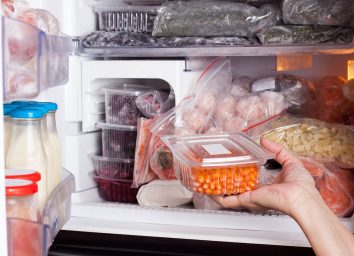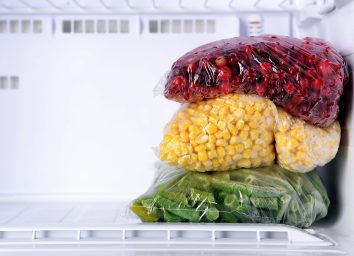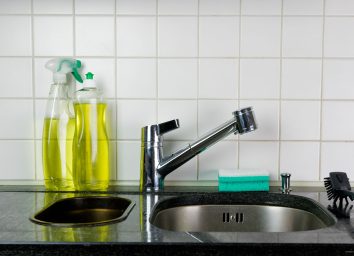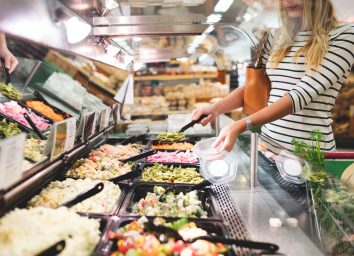10 Worst Food Mistakes You're Making, According to the CDC
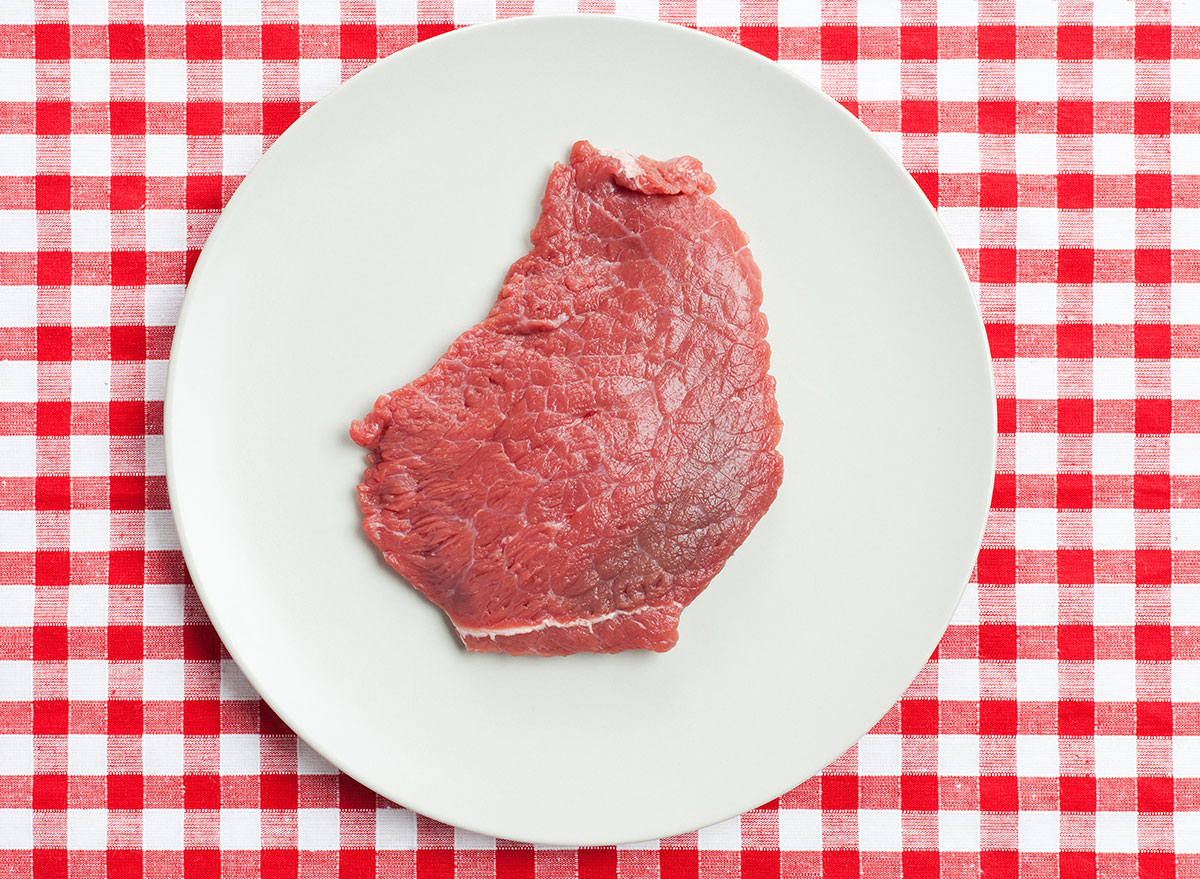
Although you rarely think of your kitchen as a playground for dangerous foodborne germs and illnesses, there are common food safety mistakes that can make it just that. Bacteria like E. coli, salmonella, and botulism toxins can appear anywhere, anytime, even when there isn't a known outbreak going on. This is why it's extra important to always practice good hygiene in the kitchen and build habits for safe food handling, cooking, and storing. Here are ten most dangerous food safety mistakes that can make you and your family sick, according to the Centers for Disease Control and Prevention (CDC). In addition to avoiding them, make sure you're cleaning the germiest parts of your kitchen regularly.
Not washing your hands

Washing your hands is the number one golden rule of food safety and good hygiene in general. Your hands move from potentially contaminated surfaces to your face and mouth thousands of times a day—you sneeze into them, touch others, and prepare food. All with the same pair of hands! The potential for cross-contamination is huge, which is why it's paramount to keep your hands clean by washing them with soap and water regularly. Here are the most critical times when hands need to be washed while you're in the kitchen:
- Before, during, and after preparing food
- Before eating food
- After blowing your nose, coughing, or sneezing
- After touching an animal
- After handling pet food or pet treats
- After touching garbage
Make sure you're washing your hands properly: wet them, lather with soap, scrub for at least 20 seconds, then rinse and dry them off with a clean single-use towel. Read up on other hand-washing mistakes that can help germs spread.
Washing raw meat or eggs
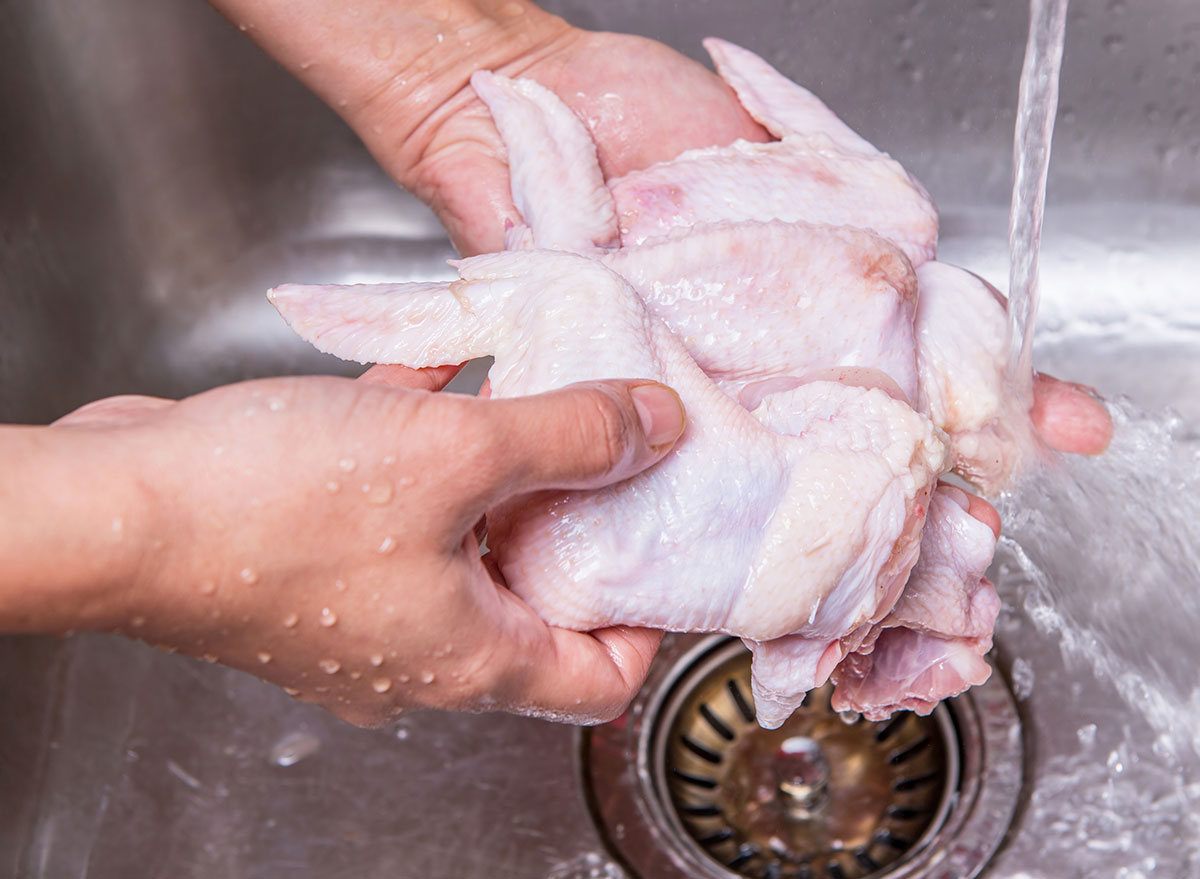
Let's put this one to rest once and for all. If you're having debates with your family members about whether you should be washing raw meat, the answer is no, no, no. The same goes for eggs. Although you may think you're doing the right thing by washing these germ-prone foods, you're actually helping spread those germs all over your sink and countertops. The best way to kill food germs is by cooking your food properly.
Related: This Is Why You Should Never Rinse Raw Chicken
Not washing fruits and veggies
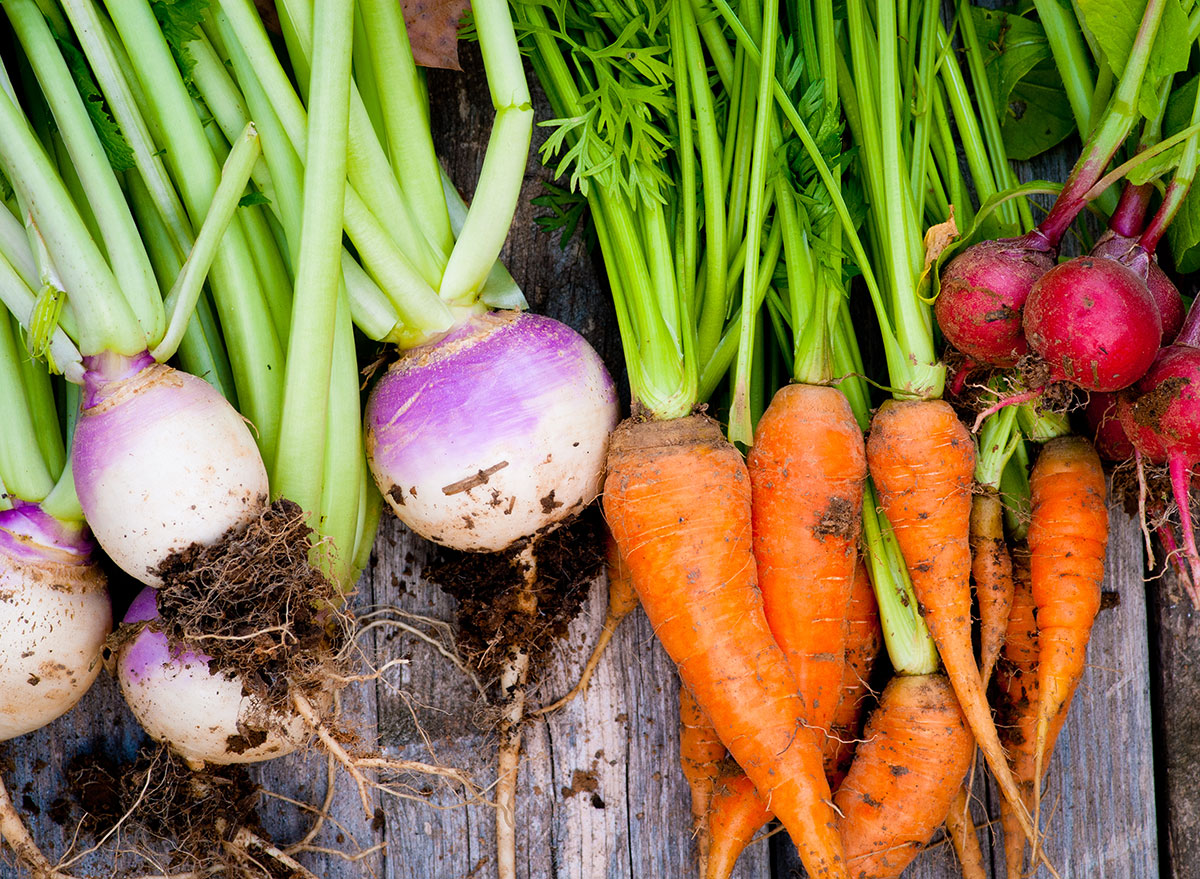
Fruits and vegetables, however, you'll definitely want to wash, even if it's something you're peeling. The germs on the skin of fruits and vegetables can contaminate the parts that you're actually eating, so rinsing them under running water is a must. It's also good to have a designated vegetable brush on hand, which you can use to brush firm fruits and vegetables like melons or avocado.
Using the same plate for raw and cooked meat
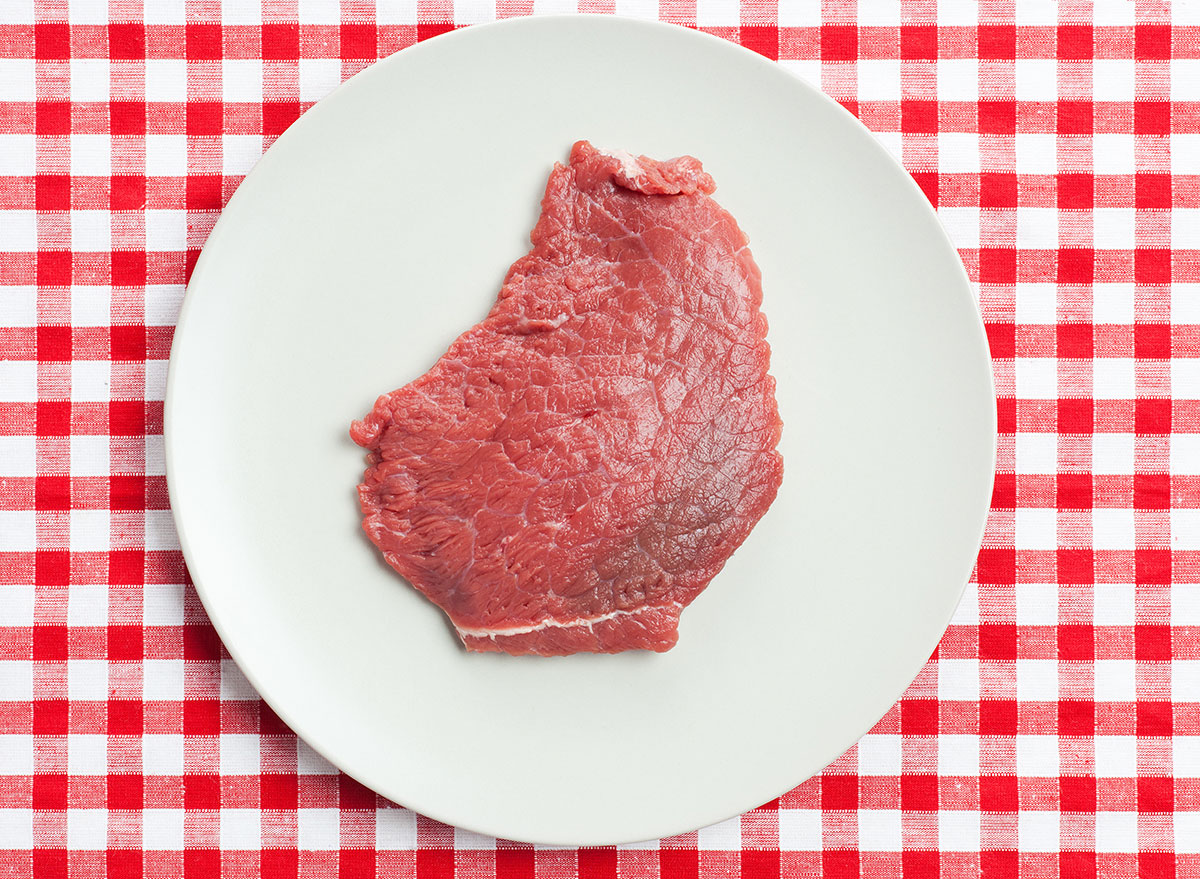
Please don't ever reuse the plate or bowl where you kept raw meat during the same cooking session. Anything the raw meat has touched should be washed with dish soap immediately, and that goes for cutting boards, too. It may seem like a good idea to use fewer dishes when you're cooking so you don't have a lot of cleaning up to do on a full belly, but this is not the place to skimp—raw meat germs will most definitely contaminate the cooked meat you're about to eat. Same goes for fish and shellfish, too.
Related: Your ultimate restaurant and supermarket survival guide is here!
Not cooking meat, seafood, or eggs thoroughly

The best way to kill the germs on your food is by cooking it thoroughly, and the temperature should be high enough to actually do the job. Use a food thermometer to make sure you've achieved the following internal temperatures that will prevent germ-spreading:
- 145°F for whole cuts of beef, pork, veal, and lamb
- 160°F for ground meats, such as beef and pork
- 165°F for all poultry, including ground chicken and turkey
- 165°F for leftovers and casseroles
- 145°F for raw ham
- 145°F for seafood, or cook until flesh is opaque
Here's how to tell when every type of meat is cooked properly and done.
Eating raw or uncooked foods that contain eggs or flour
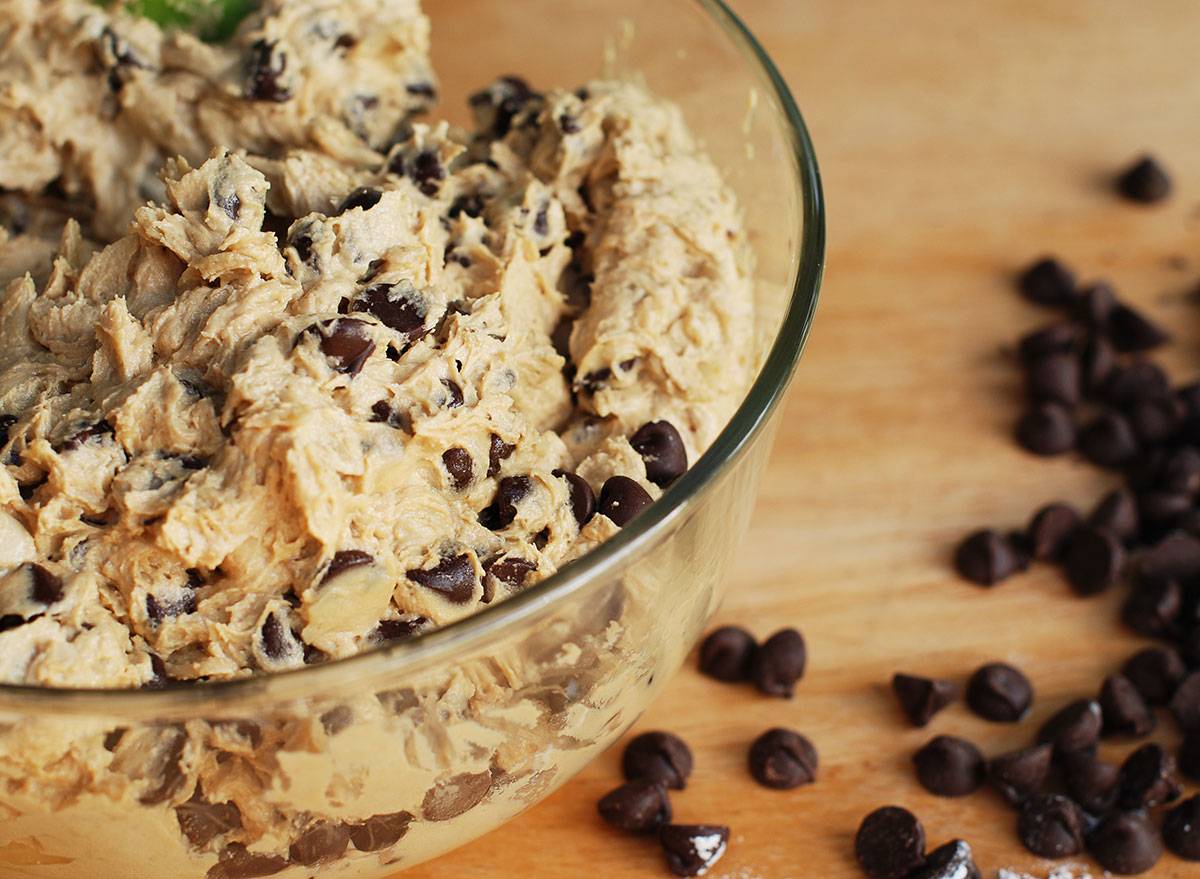
We're looking at you, cookie dough–lovers. Uncooked flour and eggs can contain an array of harmful germs, the most well-known being E. coli. Our dessert preferences aside, the best way to prevent food poisoning is to avoid the following high-risk foods altogether: runny or undercooked eggs, homemade mayo, homemade hollandaise sauce, homemade eggnog, and uncooked dough or batter of any kind. This is especially important for those who are immunocompromised—why take any chances?
Tasting food to see if it's bad
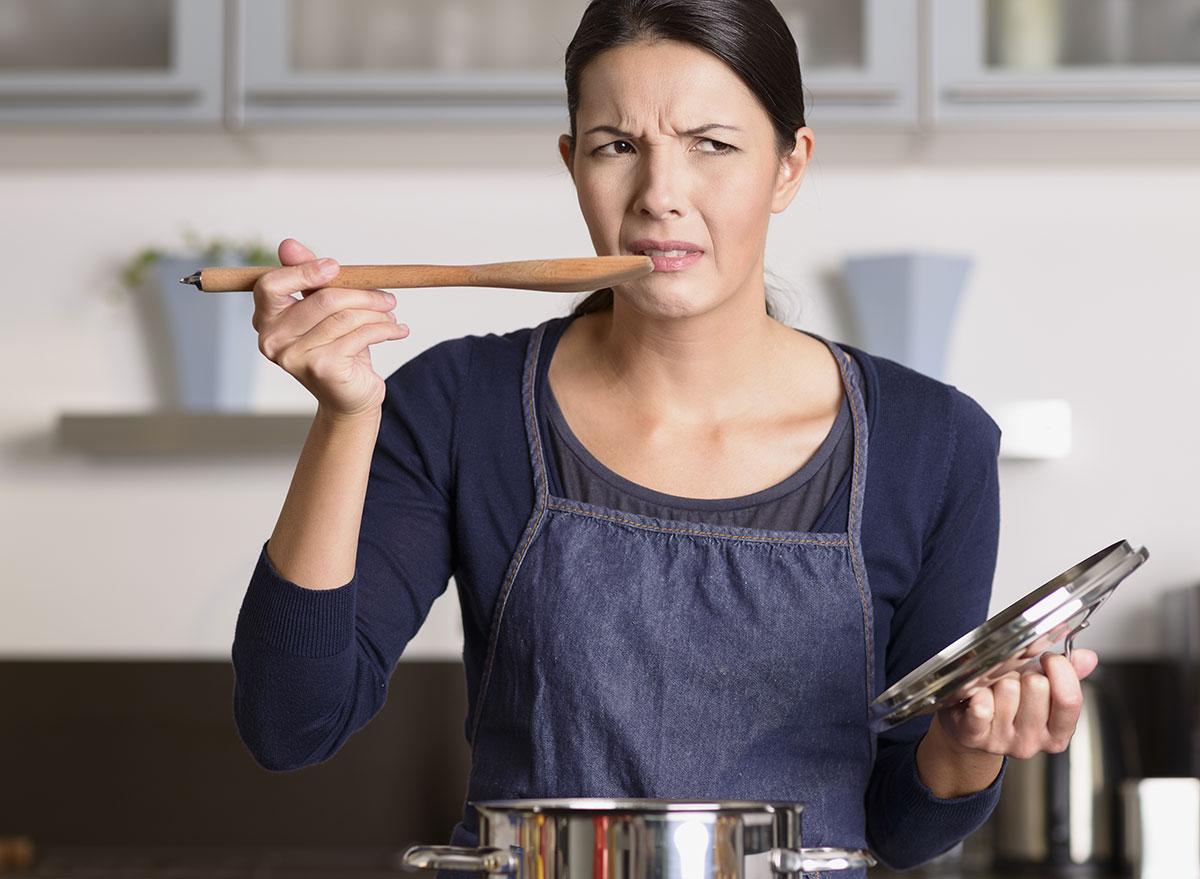
If you have a suspicion something in your fridge has gone bad, tasting it to make sure is a bad idea. First of all, you'll rarely be able to taste or smell the germs that may be present on the food. Second of all, if you think a small piece of spoiled food can't possibly cause much harm, you're wrong. You can get seriously sick from a very small amount of spoiled food. Get our tips on how to store food properly so it doesn't go bad. And here is a list of foods that don't need refrigerating.
Thawing or marinating meat on the counter
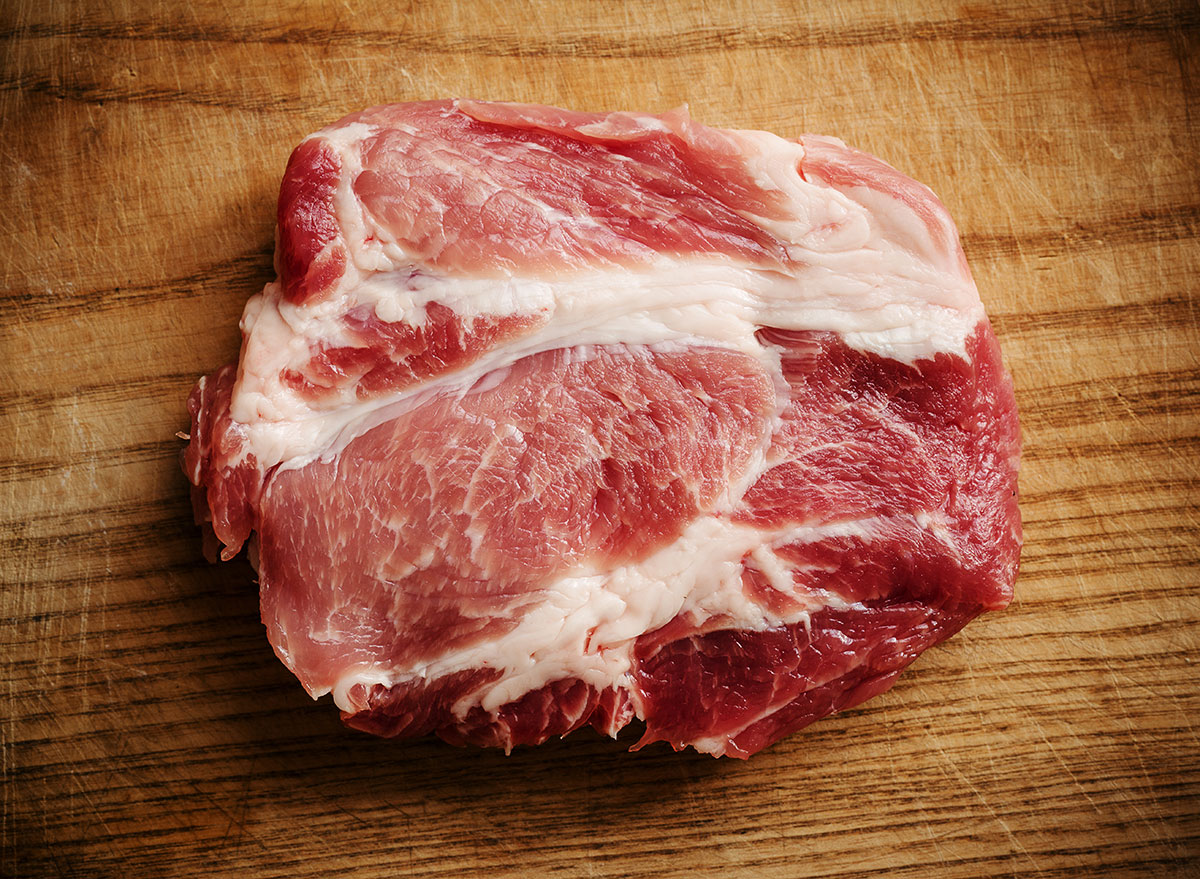
The CDC warns that harmful germs can multiply quickly at room temperature, so it's advisable not to thaw meat on your kitchen counter. The safest ways to thaw food is in the fridge, in cold water, or in the microwave. Same goes with marinades—always keep your marinating meat in the fridge instead of out at room temperature. Get our tips on how to safely thaw chicken.
Leaving food out too long before storing
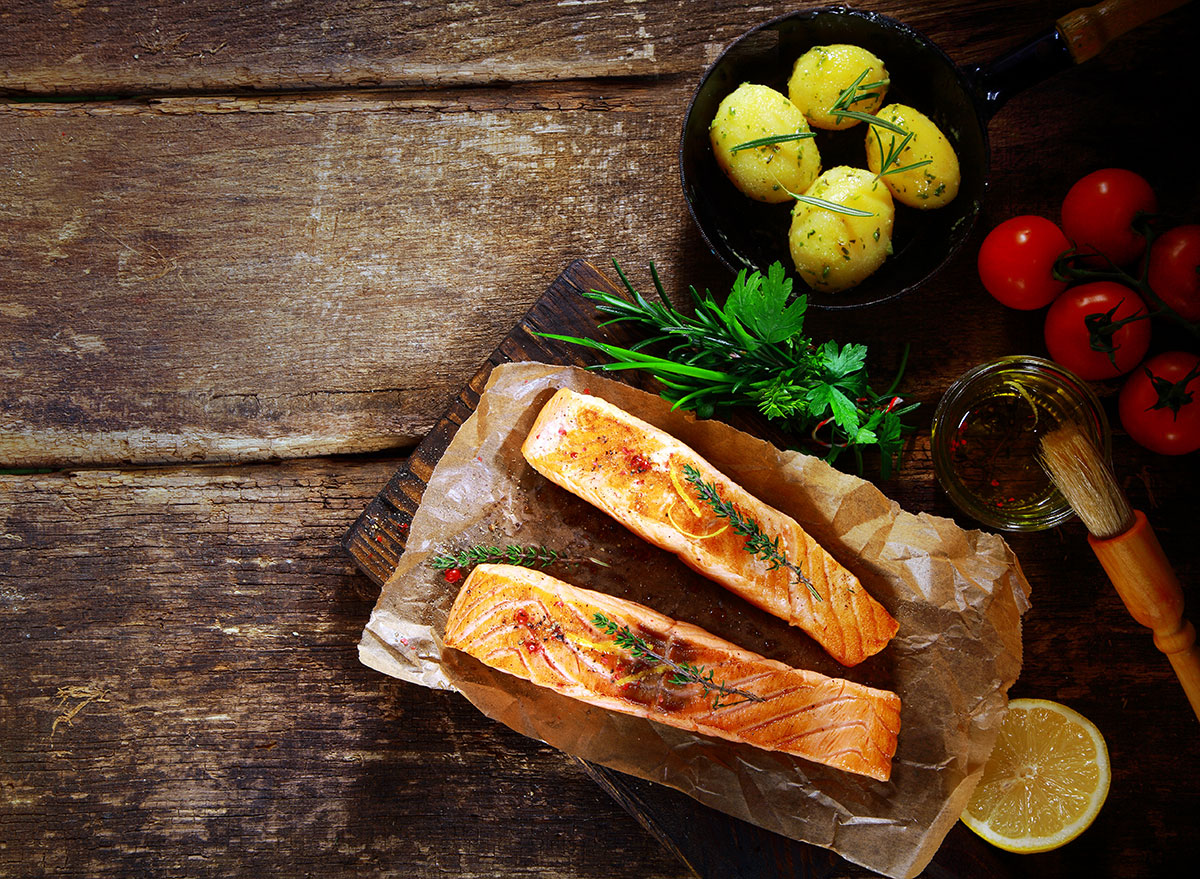
Germs will proliferate in cooked foods that are left out at room temperatures for over two hours, and if it is over 90-degrees Fahrenheit, one hour. So if you have leftovers, proper handling and prompt storage is important. Anything from cooked meat, chicken, turkey, seafood, rice, and cut fruit, should be placed in the fridge within two hours of being cooked or cut. Divide the food into shallow containers and refrigerate. However, remember to let all hot food come down to room temperature before refrigerating. Make sure you're avoiding other mistakes that may ruin your leftovers.
Eating risky foods if you are immunocompromised

Sometimes your best bet is to stay away from "risky" foods if you want to bring your chances of getting food poisoning to a minimum. Foods like raw milk and eggs and products made with them, fish, and shellfish are common culprits of most food poisoning cases in the United States. This is especially true for those with weaker immune systems like adults over 65, children under 5, and others with any type of immunocompromised condition (such as cancer or diabetes). Those groups are less able to fight food germs, and are more likely to get food poisoning if they ingest unclean food.
STAY INFORMED: Sign up for our newsletter to get the latest coronavirus foods news delivered straight to your inbox.
